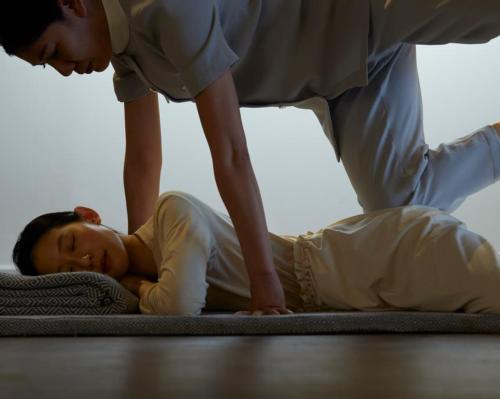18 Dec 2020
RAKxa: integrated wellness retreat in Bangkok will improve guests’ quality of life
BY Megan Whitby

RAKxa, a new integrative wellness and medical retreat has recently opened in Thailand, as a result of a partnership between Thai-based M.K. Real Estate Development, VitalLife Scientific Wellness Clinic and Minor Hotels, which will manage the 60-villa destination.
The property houses a two-level 3,636sq m holistic wellness centre offering a host of holistic therapies, including Traditional Thai Medicine, Traditional Chinese Medicine, Ayurveda and energy healing.
Its differentiating factor is a world-class medical centre, VitalLife Scientific Wellness Clinic, a subsidiary of Thailand’s renowned Bumrungrad International Hospital, known for its premium anti-ageing expertise.
Dr Narinthorn Surasinthorn, medical director at RAKxa’s VitalLife clinic, told Spa Business that RAKxa will “integrate scientific wellness and traditional medicine to create personalised programmes for each and every guest.”
All programmes will begin with medical testing at the VitalLife clinic, to help physicians decipher a blueprint of guest’s wellbeing, using their current state of health, risk of disease and hormone and micronutrient status.
“Following this, we’ll design a programme to match the results and needs of each guest, prescribing an appropriate diet, exercise, wellness treatments, supplements and lifestyle modification plan,” he said.
“This will be underpinned by VitalLife’s core concepts; a scientific-based approach, personalisation and a long-term partnership to care for our patients even after they depart, through the knowledge we’ve instilled in them during their stay.
“The main health concerns we expect to see will all be things many people experience regularly and think nothing of, like headaches, insomnia or bloating,” explained Surasinthorn.
“We’re going to help our guests relieve these unnecessary symptoms and ultimately have a better quality of life.”
Wellness tourism
Surasinthorn anticipates that once borders reopen, RAKxa will see an intake of 60 per cent foreign tourists and 40 per cent domestic Thai guests.
He believes wellness tourism has been on the up for the last 10 years and been rapidly popularised by the recent spotlight shone on the importance of health and preventative healthcare.
“In addition, the world’s ageing population is making people more aware of their quality of life and health again,” he added.
As a consequence, Surasinthorn predicts the industry will see more secondary wellness tourism, in the form of travel packages blended with health and wellness offerings.
He believes medi-wellness will be a part of this trend because a growing number of hotels are trying to expand their spa offering to incorporate a medical wellness element, such as Anantara’s plan to roll out three aesthetic hubs and IV drip bars across Asia.
“In my opinion, we need to integrate medi-wellness and spa closer together to create a new experience for the guest,” he said, “the spa industry needs to begin by making medi-wellness more approachable for consumers and help it be seen as something that’s relaxing and beneficial to health, like spa treatments.”
For years, the medical industry has shunned spa treatments, even though the efficacy of many modalities are backed by numerous studies.
To find out if Surasinthorn believes the medical profession is becoming more open-minded, check out the latest issue of Spa Business here.
Close Window